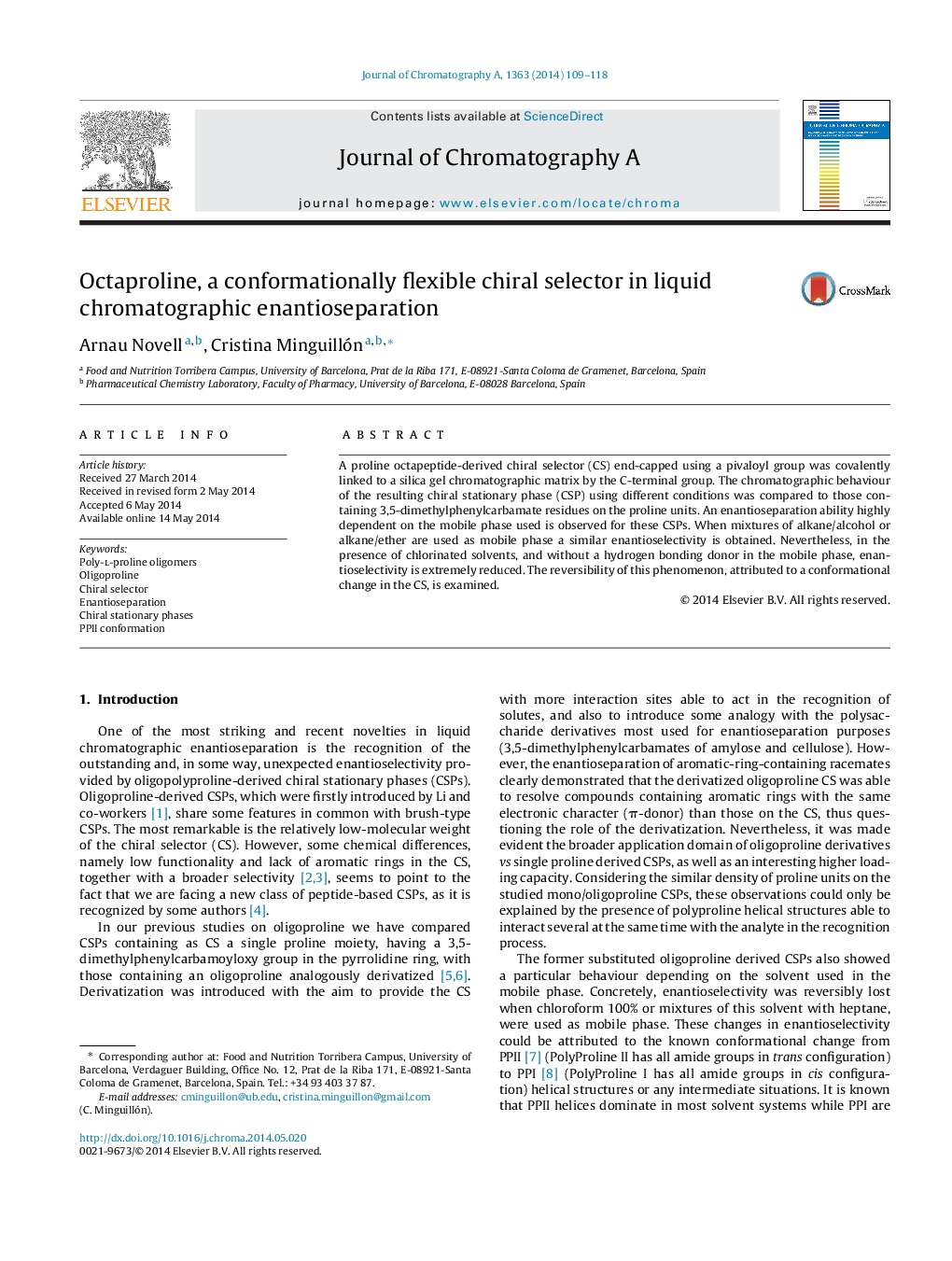| Article ID | Journal | Published Year | Pages | File Type |
|---|---|---|---|---|
| 1199163 | Journal of Chromatography A | 2014 | 10 Pages |
•Enantiorecognition in oligoproline CSPs depends on chiral selector conformation.•Mobile phase composition determines reversible conformational changes on oligoproline.•Hydrogen bonding is fundamental in enantiorecognition by oligoproline-derived CSPs.•Protic solvents promote enantioselective rigid ordered oligoproline structure.
A proline octapeptide-derived chiral selector (CS) end-capped using a pivaloyl group was covalently linked to a silica gel chromatographic matrix by the C-terminal group. The chromatographic behaviour of the resulting chiral stationary phase (CSP) using different conditions was compared to those containing 3,5-dimethylphenylcarbamate residues on the proline units. An enantioseparation ability highly dependent on the mobile phase used is observed for these CSPs. When mixtures of alkane/alcohol or alkane/ether are used as mobile phase a similar enantioselectivity is obtained. Nevertheless, in the presence of chlorinated solvents, and without a hydrogen bonding donor in the mobile phase, enantioselectivity is extremely reduced. The reversibility of this phenomenon, attributed to a conformational change in the CS, is examined.
